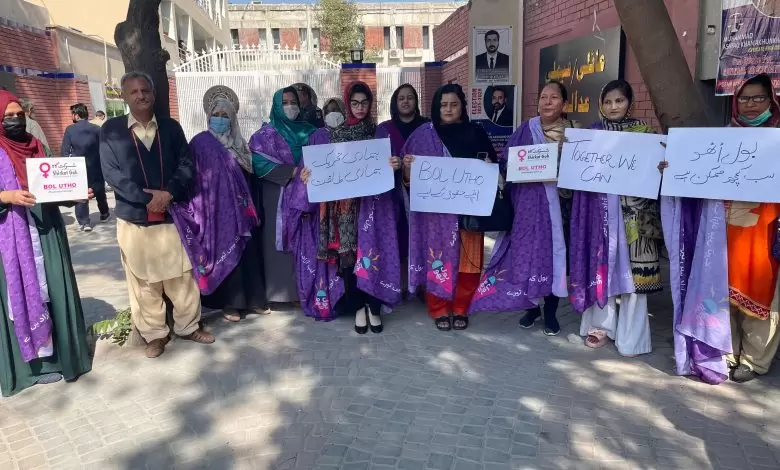
PESHAWAR: The demand for reforming Pakistan’s marriage contract—Nikah Nama—is gaining momentum in Khyber Pakhtunkhwa, with civil society, legal experts, and women’s rights activists urging the government to eliminate legal loopholes, introduce a standardized marriage contract across the province, and ensure the protection of women’s rights.
Under the banner of the “Bol Utho” campaign, a short film screening and a session on Nikah Nama reforms were held at the Peshawar Press Club. The event brought together former Provincial Ombudsperson Rakhshanda Naz, Peshawar High Court lawyer Nasir Ghalezi, civil society members, students, lawyers, and women’s rights activists.
The short film Bol Utho spotlighted issues such as unregistered Nikah Khwans, unqualified marriage registrars, and legal oversights in the marriage registration process.
Also Read: Berlin-Based Imam Guides 90 Non-Muslims to Islam Through Compassionate Outreach
Addressing the session, former Ombudsperson Rakhshanda Naz criticized the common practice of crossing out the section on the woman’s right to divorce (Talaq) at the time of marriage, calling it a blatant violation of women's legal rights. She demanded equal rights of divorce for women and inclusion of clauses guaranteeing women’s rightful share in inheritance within the Nikah Nama.
“Whenever reforms to the Nikah Nama are discussed, women’s rights are often sidelined. Sections are cut off without even consulting the bride,” Naz said. She cited Iran’s model, where 30% of a husband's income is legally allocated to the wife, and emphasized that in Pakistan, women often remain unpaid labor after marriage. “They must be given a rightful share in household income.”
Advocate Nasir Ghalezi of the Peshawar High Court revealed that he has filed a writ petition seeking mandatory HIV and thalassemia testing prior to marriage, along with standardized training for Nikah registrars. He pointed out that crucial sections—13, 14, and 15—of the Nikah Nama are frequently left blank due to registrars’ ignorance, often resulting in lengthy legal battles.
Journalist Zeenat Bibi, creator of the short film, said the aim was to raise awareness about women’s right to read and fill out their Nikah Nama. She highlighted that there is still no standardized marriage contract format in the province, which poses serious risks to women's legal protection.
Speakers concluded the session with a unified call to modernize and unify the Nikah Nama format and increase the number of family courts to expedite resolution of marital disputes.